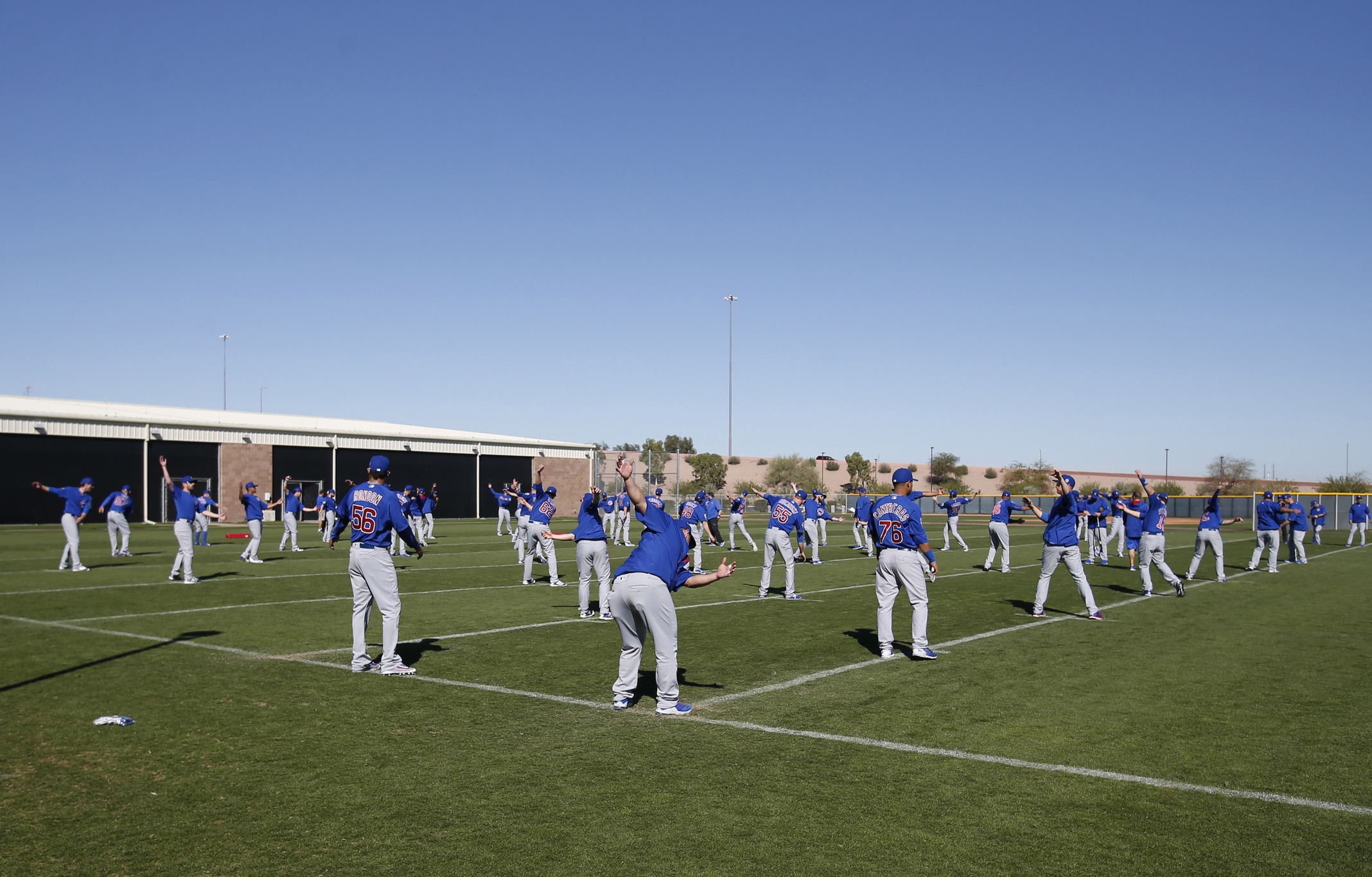The BP Annual’s blurb on Gleyber Torres includes a cautionary aside: “When you’re scouting [Torres’s] stat line, remember the following key considerations: age relative to level, position, and the fact that you really shouldn’t be scouting his stat line.” While cute, it’s salient advice nonetheless: low-level minors stat lines are almost never useful in scouting players and projecting their development.
But we Cubs fans, we’re a worrisome bunch, aren’t we? We’ve seen players with great tools struggle at higher levels, especially with regards to strikeouts. We’ve also become somewhat accustomed to “scouting stat lines,” as the recent crop of Cubs prospects has put up spectacular minor-league numbers. Each home run by Kris Bryant, Kyle Schwarber, Jorge Soler, and Javier Baez has whet our appetites for their eventual big league debuts, and their stat lines, combined with the scouting reports touting their raw power, patience, baseball IQ, etc., have been integral to how we view them as prospects, whether or not those stats merit such fawning. Ultimately, the young Cubs who have graduated to the major league team have either been mature college draftees, astute trade acquisitions close to major-league ready, or international signings with significant professional experience.
Torres is decidedly not one of those three things, which presents not only a problem of how to perceive his development as fans (hint: it’s with great patience), but also possibly a problem that the Cubs’ organization will have to solve in helping shepherd Torres to success. Scouts cite Torres’s baseball maturity—namely, his good footwork, his instinctive hitting and fielding, and his ability to make adjustments—as his chief merit. That maturity is one reason he can hold his own in a league whose average age is several years beyond Torres’s own 19. Former Wrigleyville contributor Mauricio Rubio, meanwhile, noted that Torres possesses a “linear swing path” and a “fluid swing” (both good things) and also praised the shortstop’s ability to adjust his approach mid-at-bat. Scouts have also remarked publicly on Torres’s moderate power potential and above-average defense. Ultimately, Torres is a well-rounded player who does most things well but nothing exceptionally well, with his hit tool as the tool with the most likely to make an impact.
It’s a profile that brings to mind the youngest of the Cubs’ highly touted prospects of those who have made the majors: Addison Russell. I asked Rubio whether or not Russell was a fair comparison for Torres, and he praised both players’ “high baseball-IQ,” “instincts,” and “situational awareness.” Torres also displays a baseball wisdom beyond his years, which makes up for his lack of a standout stat line skill. Rubio gave an example of Torres remembering an exceptional breaking pitch early in an at-bat, adjusting his hands and swing to make solid contact on the same pitch later. In this regard, his standout qualities are of the scouted, makeup type, qualities paramount in the revamped farm system of the past several years.
Many of the Cubs’ top prospects in recent memory have struggled with whiffs both in the minors and upon their major-league debuts, most notably Baez and Russell. Might Torres have the same problem as he progresses through the ranks? When I posed Rubio that question, he said, “[Torres] manipulates the barrel well, and if he gets fooled once he’s shown the kind of adaptability that will allow him to retain his contact skills against better competition.” Ultimately, his knack for adjustment at the plate should play at any level, with high contact rates and low strikeouts as a result.
Torres won’t sniff the slugging marks of the other blue chip prospects, recently graduated, but if he could keep his strikeout percentage in the low-20s and his walk percentage closer to ten percent than five, he should have significant success at High-A Myrtle Beach. One should never expect linear progression with prospects, but Torres’s impeccable bat-handling skills and his maturity of adjustment and recognition at the plate make him a high-floor player who likely won’t flame out against better pitching. Moreover, the Cubs clearly like Torres and players with his profile; hitting maturity is the hallmark of the current major-league club, after all. The organization has an infrastructure to develop players of that ilk, and that bodes well for the young shortstop.
Thanks to Mauricio Rubio for prompt and insightful responses to my questions, and for patience with a very green writer.
Lead photo courtesy Rick Scuteri—USA Today Sports.
